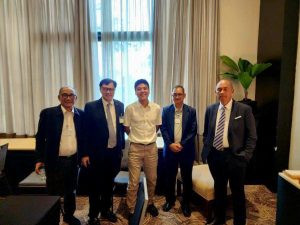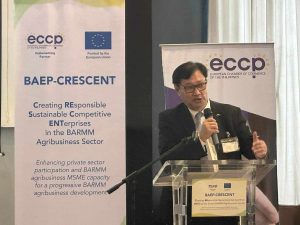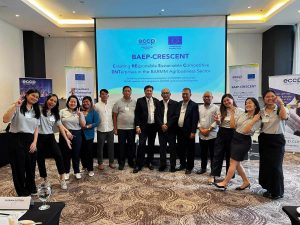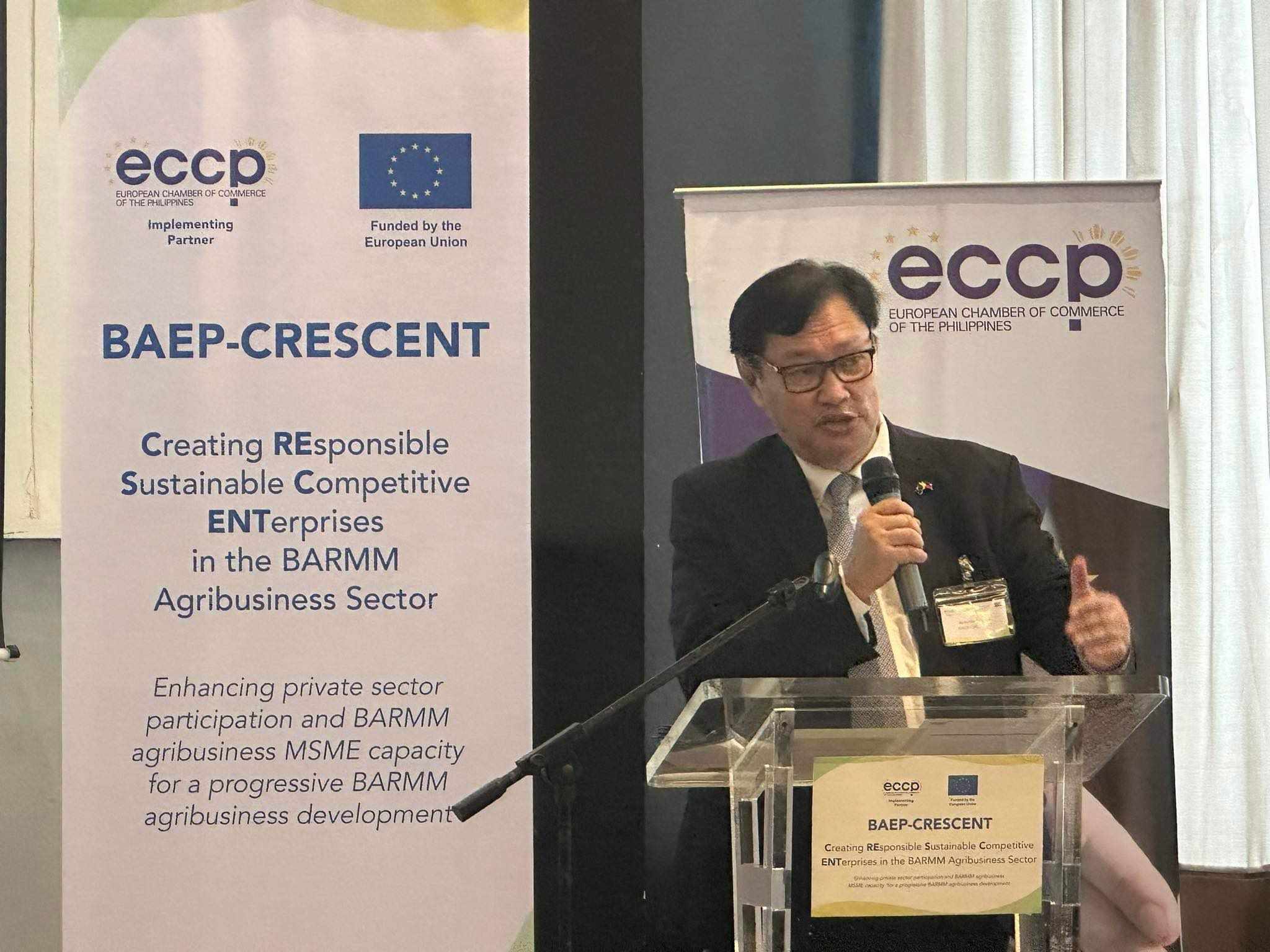
The economic situation in the Bangsamoro Autonomous Region in Muslim Mindanao (BARMM) has been marked by various challenges, but efforts to improve the economy in the region have intensified in the past year. Sustained commitment and cooperation from various stakeholders is significant to achieve its potential.
The BARMM economic agenda is primarily focused on promoting sustainable development, reducing poverty, and fostering inclusive growth in the region. It has outlined several key priorities and strategies to achieve these goals which includes agricultural development as one of its pillars.
On February 15, 2024, the European Chamber of Commerce in the Philippines (ECCP), launched its 4-year CRESCENT Project (Creating Responsible, Sustainable and Competitive Enterprises) to “contribute to a peaceful, cohesive, secure, and inclusively developed Bangsamoro by promoting rural and value chain development.” This project is supported by the European Union through the Bangsamoro Agri Enterprise Program (BAEP).

The event showcased the project’s objectives, presented updates on its implementation for the past 14 months, and officially launched collaborations with investors, anchor firms, and institutional partners.
BAEP- CRESCENT
The BAEP CRESCENT began operations on November 8, 2022. Its three main objectives are to design and implement a private sector-led agribusiness development and promotion strategy, increase the pool of BARMM agribusiness MSMEs that are ready for investment and export promotion; and grow investments and exports in the BARMM agribusiness sector.
Agriculture is a vital sector in BARMM, employing a significant portion of the population and contributing to food security and rural livelihood. The government is committed to supporting this sector by providing farmers with access to resources, technology, markets, and infrastructure. Initiatives also include the provision of agricultural inputs, training programs, irrigation facilities, and market linkages.
Aside from agricultural development, the BAEP-CRESCENT project also recognizes the importance of infrastructure in driving economic growth. It partners with BARMM agencies to explore investment opportunities in infrastructure projects such as ports, airports, and utilities. Improved infrastructure not only enhances connectivity within the region but also facilitates trade and investment, thereby stimulating economic activity.

Historically, the region has faced socio-economic challenges including poverty, underdevelopment, and conflict-related issues. With the creation of the BARMM in 2019, addressing these issues and promoting peace and prosperity in the area has become a top priority.
One of the main economic challenges in BARMM is poverty. The region has consistently had high poverty rates compared to other parts of the Philippines. Addressing poverty requires sustained efforts in economic development, infrastructure improvement, education, and healthcare.
The BARMM government, along with support from the national government and international organizations, has been working to address these challenges and promote economic development in the region. Efforts have included infrastructure projects, capacity-building programs, investment promotion initiatives, and support for agriculture and livelihood programs.
It’s worth noting that the economic situation in any region can be complex and multifaceted, influenced by factors such as governance, security, natural resources, and external economic conditions. (To be continued: Private sector collaborations)

